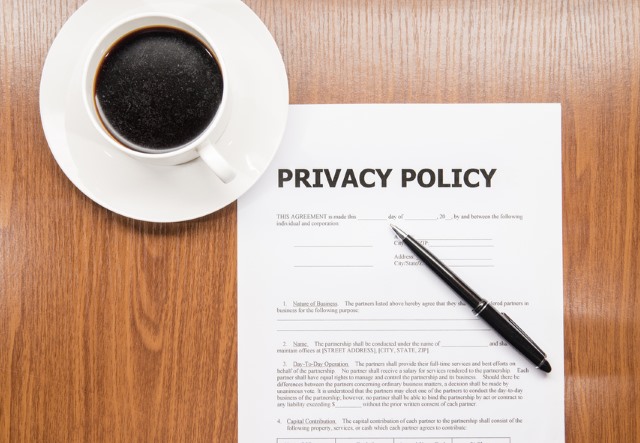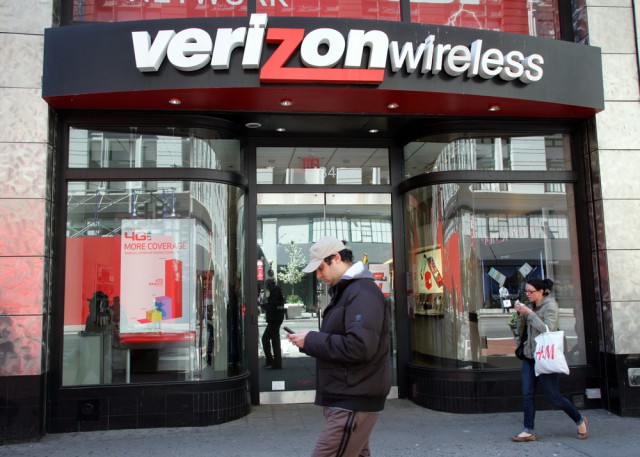
Only collaboration will solve the encryption dilemma
"They who can give up essential liberty to obtain a little temporary safety deserve neither liberty nor safety". So goes the quote from Benjamin Franklin, one of the Founding Fathers of the United States, in 1755. Little did he know that over 250 years later, his words would be frequently cited in one of the most complex debates of modern times.
In a world where data is collected, shared and sold as the norm, the liberty vs. security question has never been so relevant. The topic has been brought into the public eye by the UK Home Secretary’s draft Investigatory Powers Bill -- or Snoopers’ Charter -- and honed-in on the issue of encryption. More specifically, whether government agencies should be given the power to access encrypted, private communications, by forcing service providers to hand them over.

Privacy and security killer: Obama supports backdoors to bypass encryption
The on-going battle between Apple and the FBI has brought encryption and security to the fore once again. After remaining silent on the subject for some time, President Obama -- speaking at SXSW -- said that he was opposed the idea of encryption mechanism that are so strong it prevents governmental access.
"If technologically it is possible to make an impenetrable device or system where the encryption is so strong that there is no key, there's no door at all, then how do we apprehend the child pornographer, how do we solve or disrupt a terrorist plot?" he wondered aloud, his almost rhetorical question playing neatly on two of America's biggest fears. He suggested that security keys should be made available to third parties, saying "you cannot take an absolutist view" when it comes to balancing security and privacy. But Obama has a solution: backdoors.

Fighting censorship: Edward Snowden, Amnesty International, AdBlock and Pussy Riot
Online advertising is incredibly divisive, and for World Day Against Cyber Censorship, AdBlock is opting to replace banner ads that would normally be blocked with links to Amnesty International. The human rights group is fronting an anti-cyber-censorship campaign, joined by Edward Snowden, Pussy Riot (famous for rubbing up Russia's President Putin the wrong way) and Ai Weiwei.
The aim of the campaign is to promote freedom of speech online but highlighting examples of free speech being censored -- not just in obvious places like China and North Korea, but also the United States and the United Kingdom. Government control of the internet is something that many think is restricted to limiting what journalists are able to publish online, but as the campaign highlights it's a problem that can affect anyone.

Justice Department accuses Apple of false rhetoric, pooh-poohs privacy concerns
Ahead of the hearing due to be held on 22 March, the Justice Department has lashed out at Apple in its latest response to the company's refusal to unlock the San Bernardino iPhone. Playing an emotional game, the DoJ says "Apple deliberately raised technological barriers that now stand between a lawful warrant and an iPhone containing evidence related to the terrorist mass murder of 14 Americans."
It says that only Apple is able to remove the barriers that are currently in the way, "and it can do so without undue burden". Apple has already made it abundantly clear that it will not help the FBI in creating what it describes as a backdoor into the iPhone at the center of the case.

FCC's Tom Wheeler wants to protect internet users' privacy by limiting ISPs' personal data usage
The chairman of the Federal Communication Commission has put forward a set of proposals to protect internet user's privacy. Tom Wheeler wants to place limits on how ISPs are able to use customer data in much the same way that phone companies are regulated.
The amount of unencrypted data ISPs have access to which can be used for advertising and marketing worries Wheeler. The FCC already governs how phone companies can use and resell customer data, and he believes the same rules should be applied to ISPs. More than this, he wants to empower customers so they can choose precisely how their data is used.

Apple says FBI case is the start of a slippery slope to mass surveillance via iPhone
The battle between the FBI and Apple over access to the San Bernardino shooter's iPhone is turning into little more than a battle of wills. Both sides are using the case to make a point; Apple posits that unlocking the phone would set a dangerous precedent, the FBI says not unlocking the phone amounts to aiding terrorists.
There have been heavy words thrown from both sides, and the latest round of blows sees Apple claiming that the FBI could follow up its phone unlocking demand with a demand to switch on iPhone cameras and microphone for the purposes of spying on users. "Where will this stop?" asks Eddy Cue. "Some day, someone will be able to turn on a phone's microphone. That should not happen in this country".

The majority of CCTV cameras can be easily hacked
Your CCTV camera might make you feel physically safer, but after reading this article, it will sure make you feel virtually vulnerable. New research from cloud-based video surveillance company Cloudview suggests that the majority of CCTV systems can be hacked, providing an open door to cyber attackers.
The report, entitled Is your CCTV system secure from cyber attack?, says there are "major vulnerabilities" in both traditional DVR-based CCTV systems, as well as cloud-based video systems. Hackers can "easily" hijack connections to the device’s IP address, putting a lot of people, their properties and data at risk.

Erin Andrews gets $55 million for peephole video that will never go away
What happens in Vegas may stay in Vegas, but what happens online is yours forever. Things posted don't simply go away -- a problem many of today's youth will face in the future. However, it's also a problem people have to come to terms with right now, even when it's not online intentionally.
That's the case with sportscaster Erin Andrews, who was videotaped naked in her hotel room through the peephole of the room's door. Yes, it made for huge views and sensational news, but it also damaged a human being.

Verizon will have to pay $1.35m fine over 'supercookie' tracking
The Federal Communications Commission (FCC) has announced that it has found Verizon Wireless to have deliberately violated the privacy of its users.
Verizon Wireless is the largest US carrier with over 100m subscribers, but failed to disclose the practice of using supercookies in order to violate their users privacy from late 2012 until 2014, violating a 2010 FCC regulation on Internet transparency.

FBI makes clandestine changes to rules governing access to NSA data
A secret court accepted changes to the rules governing the FBI's access to NSA data about US citizen's international emails and phone activity. The Guardian received confirmation from US officials that the classified changes were made to Section 702 of the Foreign Intelligence Surveillance Act (Fisa).
The Privacy and Civil Liberties Oversight Group (PCLOB) has previously revealed that the FBI was able to search through NSA's collection of trawled data about international communication. The classified nature of the latest changes mean it is impossible to know exactly what they entail, but they are described as being a step towards "enhancing privacy".

Big Brother's crystal ball: China developing software to monitor citizens and predict terrorist activity
We've become used to the idea of online surveillance thanks to Edward Snowden blowing the lid off the activities of the NSA and GCHQ. While it's easy and natural to bemoan the infringement of privacy such surveillance entails, no one ensures as limited and controlled an internet as the Chinese.
There's the famous Great Firewall of China for starters, and as part of a counter-terrorism program the country also passed a law requiring tech companies to provide access to encryption keys. Now the Communist Party has ordered one of its defense contractors to develop software that uses big data to predict terrorist activity.

Anonymous hacks Donald Trump's voicemail and leaks the messages
In the run-up to the presidential election, few days go by when Donald Trump isn't hitting the headlines for something he's said or done. The bombastic billionaire looks set to become the republican candidate, and his journey towards the White House is littered with offense and controversy, and back in December Anonymous declared war on him.
The loose collective of hackers and activist made its declaration after Trump announced plans to ban Muslims from entering the US. One of the alleged first strikes in Anonymous' war sees the group hacking the businessman's voicemail and leaking the messages. The messages appear to show that Trump had a surprisingly cosy relationship with the more left-leaning section of the media than one might imagine.

Google to use geolocation data to block Right To Be Forgotten links around the world
Google is updating its approach to delisting search results in Europe under the Right To Be Forgotten. At the moment, people are able to request that search results do not link to articles that are "inadequate, irrelevant, no longer relevant or excessive, and not in the public interest" but there have been ways for searchers to bypass these delistings.
While Google may remove a search result from all European Google domains, there's nothing to stop people from using non-European versions of the search engine to access otherwise-hidden data. Starting next week, Google is going to start using geolocation data to crack down on this practice.

Amazon values encryption so much that it drops support on Kindle Fire tablets
Amazon has came out in support of encryption, following Apple's recent legal battles with the US government, saying that it "plays a very, very important role" in protecting customer data.
But you might be surprised to learn that Amazon has also decided to quietly drop support for full disk encryption on its Android-based Kindle Fire tablets. Since it is portraying itself as an encryption and consumer advocate, its decision to go in the opposite direction strikes me as sheer hypocrisy.

Twitter to help UK prosecutors fight revenge porn and online abuse
Twitter has long-battled trolls and after launching various tools to help combat abuse, the social network is lending its support to the Crown Prosecution Service (CPS) in the UK. The social network is to work with prosecutors to provide training that will help the CPS to fight revenge porn, stalking and other forms of online abuse.
The move comes after a marked increase in the use of social media to perpetrate attacks on individuals, particularly women. But while levels of technical nous have generally increased, legal services have been slow to keep up with the latest changes. With new guidelines set to be published covering the persecution of women through social media, prosecutors are ready to call on Twitter's experience.
